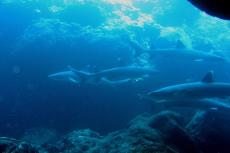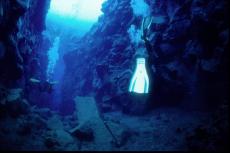
Marine biology is an interesting field that lets you learn about the ocean and the strange creatures that live in it. If you love marine life and want to make a living doing what you love, becoming a marine scientist could be the right choice for you. This step-by-step guide will teach you everything you need to know to do well as a marine scientist.
Step 1: Get interested in marine life
If you want to become a marine scientist, the first thing you need to do is love marine life very much. Do you get really interested in movies about sea creatures? Would you like to spend time at the beach or an aquarium? This desire is what will guide you on your journey. Learn about the different kinds of sea life, where they live, and the problems they face. You'll be more driven to go after this job if you know more about it.
Step 2: Get the Right Education
Education is key in the journey to becoming a marine biologist. Start by excelling in your high school science courses, particularly biology, chemistry, and physics. These subjects will provide a solid foundation for your future studies. After high school, pursue a bachelor’s degree in marine biology, biology, or a related field. Look for universities that offer strong marine biology programs with opportunities for hands-on experience. If you find yourself struggling with your coursework or essays, don’t hesitate to seek help from online writing services.When you need help, you can type in search: "write my essay online" and get a list of services. Utilizing such resources ensures that you can focus more on your practical experiences and research, crucial aspects of your marine biology education.
How to Pick the Right College
When choosing a university, you should think about where it is located, how knowledgeable the faculty is, and the research chances it offers. Universities near the coast often have better access to marine settings for fieldwork. Also, schools with well-known marine biology professors can be great places to get advice and meet other scientists.
Step 3: Get real-world experience
Theoretical information is important, but real-world experience is even more so. Look for part-time jobs, internships, or volunteer work that are related to marine biology. This could mean doing things like volunteering with conservation groups, working at aquariums, or taking part in marine study projects. These things will not only look good on your resume, but they will also show you what it's like to work as a marine scientist.
Step 4: Get more advanced degrees
A bachelor's degree can help you get jobs at the entry level, but many marine scientists choose to go for higher degrees. Getting a master's or Ph.D. can help you get more specialized jobs and do more study. You can often focus on certain areas of study in graduate school, like marine ecology, oceanography, or marine conservation. Also, advanced degrees make it easier to get jobs as a teacher or in a leadership role in the field.
Step 5: Become an expert in a subfield
There are many subfields in marine biology, and focusing in one can help you get a better job. You might want to focus on marine mammalogy, ichthyology (the study of fish), marine gardening, or marine microbiology. You can become an expert in a certain area by specializing, which can make you useful to study teams and conservation efforts.
Networking and Getting Better at Your Job
In any field, networking is important for getting ahead, and marine biology is no different. Go to conferences, join professional groups, and talk to other marine scientists. Networking can help you find a job, work with others, and get a guide. Joining online communities and subscribing to journals are great ways to stay up to date on the latest marine biology study and developments.
Step 6: Get a job
It's time to find a job once you have the right education and skills. Marine biologists work in aquariums, government agencies, study centers, and environmental groups, among other places. Researching in the field, working in labs, or teaching people about marine conservation are all possible jobs. Make sure that your resume and cover letter highlight the skills and experiences that are most important to the job. Keep trying and be willing to start at the bottom to get more experience.
Step 7: Keep growing and learning
Marine biology is an area that is always changing. New technologies and discoveries are made all the time. Lifelong learning is important if you want to stay relevant and move up in your job. Go to workshops, take extra classes, and read the latest research papers to stay up to date. If your job involves doing study in the field, you might want to get certified in diving or boat handling. You can stay on top of marine biology and make important contributions to the field if you keep learning.
In conclusion
Becoming a marine biologist is an exciting and rewarding journey that takes desire, education, and hard work. You can make your dream of exploring and protecting the ocean come true by becoming interested in marine life, getting the right education, getting work experience, going for advanced degrees, specializing in a subfield, finding a job, and committing to learning new things all your life. Now the question is: Are you ready to make a splash in the area of marine biology?





















